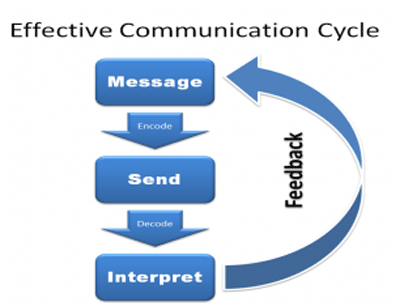Accountability – Communication = Disaster
A common complaint I hear when starting a new assignment is that everyone wants to be empowered, but very few seem to want the accountability that should come with empowerment. The solution, we find, tends to be simpler than expected. You can’t get to accountability without first addressing engagement. In far too many situations, I see companies addressing this in the wrong order. And in order to maintain the two, to make both engagement and accountability organic & scalable, you need to open the flow of communication & transparency.
Accountability
The business definition for accountability is “the obligation of an individual or organization to account for its activities, accept responsibility for them, and to disclose the results in a transparent manner.” Personally, I like to think of accountability as ownership, and more specifically owner ownership. That’s Founder Ownership if you’re in a start-up or entrepreneurial venture, and or Investor / Shareholder Ownership in later stage companies. In short, it’s the answer to the question “what would you do if you owned the company”?
Engagement
Wikipedia defines employee engagement as “a property of the relationship between an organization and its employees. An engaged employee is one who is fully absorbed by and enthusiastic about their work and so takes positive action to further the organization’s reputation and interests.” Seen many of these lately?
How are you measuring that? Considering that only 17-37% of today’s global workforce (33% in US) is actively engaged, I’ll adventure to say you haven’t seen many of your team “fully absorbed by and enthusiastic about their work and so taking positive action to further your organization’s reputation and interests”. Considering that an organization with “high” employee engagement is expected to outperform those with “low” employee engagement, all else being equal, what can you do to change your current situation?
Think about your own situation for a second. Be it in a situation in your personal or professional life, when was the last time that you felt accountable, or took accountability, for anything that you didn’t feel engaged with? Accountability is too often pushed onto people, and that just doesn’t work. At best, it’s a short term fix, not a scalable solution. In fact, it usually makes the employee resentful & pushes them from unengaged (neutral) to actively unengaged (likely to purposefully cause damage). On the other hand, if you first address engagement, than accountability will be a natural / organic consequence. But don’t take my word for it, research in behavioral science will prove this point time and time again.
Communication
“Communication” is defined as the exchange of thoughts, messages, or information, as by speech, signals, writing, or behavior. The same study that showed only 17-37% of today’s global workforce (33% in US) is actively engaged, identified the top driver for engagement as having “clarity on the organization’s priorities”.
That said, knowing from experience how frequently we lack effective communication skills, it must be stated that engagement can therefore only come about when organizations effectively communicate to employees, who in turn identify and believe in these priorities (therefore creating organic accountability).
 Having a BA in computer science & robotics, I particularly like this diagram which incorporates the basic steps of effective communication. More than verbalization, which is where most people stop, there’s a concern for taking into account interpretation by the receptor, including a feedback cycle (process) to ensure what was communicated was quantifiably and qualifiably understood.
Having a BA in computer science & robotics, I particularly like this diagram which incorporates the basic steps of effective communication. More than verbalization, which is where most people stop, there’s a concern for taking into account interpretation by the receptor, including a feedback cycle (process) to ensure what was communicated was quantifiably and qualifiably understood.
Performance Management Dashboards
If your company is using a Performance Management Dashboard, I’ll bet that it’s more accountability focused & lacks effective communication concern. 15Five is one of the few, if not the only, system I’ve seen that focuses on effective communication (conversation) first, fostering organic engagement, and accountability as a consequence of the conversation.
Or as I like to say, if engagement is a prerequisite for true accountability, then communication (conversation) is the super-glue that holds it all together.
JC Duarte is recognized for scaling high growth tech organizations and developing workforce agility that consistently exceeds revenue and profit targets. The core of his work focuses on building corporate ecosystems that provide cross-functional alignment and direction.
is recognized for scaling high growth tech organizations and developing workforce agility that consistently exceeds revenue and profit targets. The core of his work focuses on building corporate ecosystems that provide cross-functional alignment and direction.
Photo Credit: Rupert Colley
This article originally appeared on The Strategy Guy.



